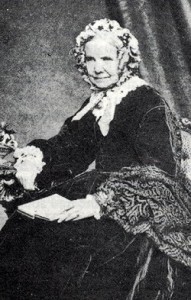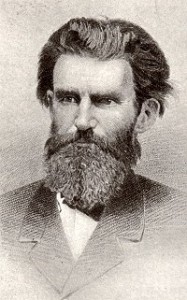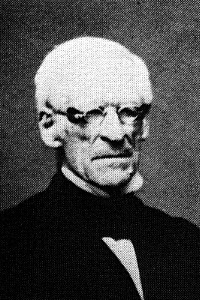Just As I Am Without One Plea – the song and it’s history
© Rhonda Pethoud, March 20, 2016
This song (Just As I Am) came on as I was listening to gospel music today, and I felt moved to write down the lyrics. While I’m a fast typist, I was writing it on the Notes section of my iPhone with one finger so of course I’m nowhere near fast enough to keep up with the song. Since I seem to research everything these days, I looked up the origins and lyrics of this song on my computer. I had no idea it was such an old hymn and had an interesting story behind it.
Here is the story of Just As I Am Without One Plea
Miss Charlotte Elliott of Clapham and Brighton (England) was visiting some friends in the West End of London, and there met the eminent minister, Cesar Malan. While seated at supper, the minister said he hoped that she was a Christian. She took offense at this, and replied that she would rather not discuss that question. Dr. Malan said that he was sorry if had offended her, that he always liked to speak a word for his Master, and that he hoped that the young lady would some day become a worker for Christ. When they met again at the home of a mutual friend, three weeks later, Miss Elliott told the minister that ever since he had spoken to her she had been trying to find her Saviour, and that she now wished him to tell her how to come to Christ. “Just come to him as you are,” Dr. Malan said. This she did, and went away rejoicing. Shortly afterward she wrote this hymn. It was first published in ”The Invalid’s Hymn Book,” in 1836.
(http://breadsite.org/hymnstories/justasiam.htm)
Some time after its publication, a lady, struck by its beauty and spiritual value, had it printed in leaflet form for circulation in cities and towns of the kingdom. Miss Elliott, in feeble health, was then in Torquay in Devonshire, under the care of an eminent physician. One day the doctor, who was an earnest Christian man, put one of these leaflets into his patient’s hands, saying that it had been helpful to him and felt sure she would like it. The surprise and pleasure was mutual when she recognized her own hymn and he discovered that she was the author. We know not which to admire most, the beauty of the composition, or the lovely modesty of its author, who for so many years forbore to divulge its origin. http://www.stempublishing.com/hymns/biographies/elliott.html
Wikipedia recounts John Brownlie’s recollection of Charlotte writing the hymn in this way:
Charlotte’s brother, the Rev. H. V. Elliott planned to hold a charity bazaar designed to give, at a nominal cost, a high education to the daughters of clergymen supported by St Mary Church:
The night before the bazaar she was kept wakeful by distressing thoughts of her apparent uselessness; and these thoughts passed by a transition easy to imagine into a spiritual conflict, till she questioned the reality of her whole spiritual life, and wondered whether it were anything better after all than an illusion of the emotions, an illusion ready to be sorrowfully dispelled. The next day, the busy day of the bazaar, she lay upon her sofa in that most pleasant boudoir set apart for her in Westfield Lodge, ever a dear resort to her friends. The troubles of the night came back upon her with such force that she felt they must be met and conquered in the grace of God. She gathered up in her soul the great certainties, not of her emotions, but of her salvation: her Lord, His power, His promise. And taking pen and paper from the table she deliberately set down in writing, for her own comfort, “the formulae of her faith.” Hers was a heart which always tended to express its depths in verse. So in verse she restated to herself the Gospel of pardon, peace, and heaven. “Probably without difficulty or long pause” she wrote the hymn, getting comfort by thus definitely “recollecting” the eternity of the Rock beneath her feet. There, then, always, not only for some past moment, but ” even now ” she was accepted in the Beloved “Just as I am”. (www.wikipedia.org)
Though weak and feeble in body, she possessed a strong imagination, and a well-cultured and intellectual mind. Her love of poetry and music was great, and is reflected in her verse. Her hymns number about 150, a large percentage of which are in common use. The finest and most widely known of these are, “Just as I am” and “My God, my Father, while I stray.” Her verse is characterized by tenderness of feeling, plaintive simplicity, deep devotion, and perfect rhythm. For those in sickness and sorrow she has sung as few others have done. Her hymns appeared in her brother’s Psalms & Hymns and elsewhere. (www.hymnary.org)
Charlotte’s brother, Reverend H.V.Elliott, later said, “In the course of a long ministry, I hope I have been permitted to see some of the fruit of my labor, but I feel that far more has been done by a single hymn of my sister’s.”
Charlotte Elliott’s song was first published in 1835 and set to music in 1849 by William B. Bradbury. American Composer Thomas Hastings later adapted the tune. 


Charlotte Elliott 1789-1871 William B. Bradbury 1816-1868 Thomas Hastings 1784-1872
(http://www.hymntime.com/tch/htm/j/u/s/justasam.htm) and (www.wikipedia.org)
William B. Bradbury was born on October 6, 1816 in York, Maine where his father was the leader of a church choir. He had a brother, Edward G. Bradbury.
He moved with his parents to Boston and met Lowell Mason, and by 1834 was known as an organist. In 1840, he began teaching in Brooklyn, New York. In 1847 he went to Germany, where he studied harmony, composition, and vocal and instrumental music with the best masters.
In 1854, he started the Bradbury Piano Company, with his brother, Edward G. Bradbury in New York City.[1] William Bradbury is best known as a composer and publisher of a series of musical collections for choirs and schools. He was the author and compiler of fifty-nine books starting in 1841.[2]
In 1862, Bradbury found the poem Jesus Loves Me. Bradbury wrote the music and added the chorus: “Yes, Jesus loves me, Yes, Jesus Loves me …”
The original music, “Woodworth”, was written by William B. Bradbury, and was first published in the Third Book of Psalmody in 1849. The “Woodworth” tune was first used for the hymn “The God of Love Will Soon Indulge”. Thomas Hastings adapted Bradbury’s tune for “Just As I Am” years later. (wikipedia.org)
Thomas Hastings was an American composer, primarily an author of hymn tunes of which the best known is “Toplady” for the hymn, Rock of Ages. Hastings compiled the hymn book Spiritual Songs with Lowell Mason in 1831, which included his most well-known hymn “Rock of Ages.” He then moved to New York City, where he served as a choir master for 40 years, from 1832 to 1872. Hastings was a prolific composer, writing some 1000 hymn tunes over his career, and what Mason calls the “simple, easy, and solemn” style of his music remains a major influence on the hymns of the Protestant churches to this day. (wikipedia.org)
Here is the original song, as written by Charlotte Elliott
- Just as I am, without one plea,
but that thy blood was shed for me,
and that thou bidst me come to thee,
O Lamb of God, I come, I come. 2. Just as I am, and waiting not
to rid my soul of one dark blot,
to thee whose blood can cleanse each spot,
O Lamb of God, I come, I come. 3. Just as I am, though tossed about
with many a conflict, many a doubt,
fightings and fears within, without,
O Lamb of God, I come, I come. 4. Just as I am, poor, wretched, blind;
sight, riches, healing of the mind,
yea, all I need in thee to find,
O Lamb of God, I come, I come. 5. Just as I am, thou wilt receive,
wilt welcome, pardon, cleanse, relieve;
because thy promise I believe,
O Lamb of God, I come, I come.6. Just as I am, thy love unknown
hath broken every barrier down;
now, to be thine, yea thine alone,
O Lamb of God, I come, I come. Text: Charlotte Elliott, 1789-1871
Music: William B. Bradbury, 1816-1868 and Thomas Hastings 1784-1872
Here, the modern version we know so well:
Just As I Am
1 VERSE:
Just as I am, without one plea
But that Thy blood was shed for me
And that Thou bidst me come to Thee
O Lamb of God, I come, I come
2 VERSE:
Just as I am, and waiting not
To rid my soul of one dark blot
To Thee whose blood can cleanse each spot
O Lamb of God, I come, I come
CHORUS:
I come broken to be mended
I come wounded to be healed
I come desperate to be rescued
I come empty to be filled
I come guilty to be pardoned by the blood of Christ the Lamb
And I’m welcomed with open arms
Praise God, just as I am
3 VERSE:
Just as I am, I would be lost
But mercy and grace my freedom bought
And now to glory in Your cross – Oh Lamb of God I come, I come
CHORUS:
I come broken to be mended
I come wounded to be healed
I come desperate to be rescued
I come empty to be filled
I come guilty to be pardoned by the blood of Christ the Lamb
And I’m welcomed with open arms
Praise God, just as I am
CHORUS (again)
Many artists have sung this song, including Carrie Underwood, Johnny Cash and Travis Cottrell.
“Just As I Am Without One Plea” was made especially popular in the 20th century as “Just As I Am” the ‘official’ altar call song of the Billy Graham Crusades.
I was unable to find any articles about who added the chorus because those words do not appear in the original poem, but it is possible they were added during the Billy Graham Crusades as the “modern” church uses the chorus and only a few verses of the original lyrics.
While the modern version is a bit different than the original, I’m sure Charlotte Elliott would be pleased that her hymn is recognized all over the world as a plea and thanksgiving for salvation by faith in Christ. Nearly 200 years later, how blessed we are still, to know that we will be accepted ‘just as I am’. Whosoever will…
Whosoever will come after me, let him deny himself and take up his cross and follow me.” Mark 8:34
” For whosoever shall call upon the name of the Lord shall be saved.” Romans 10:13
